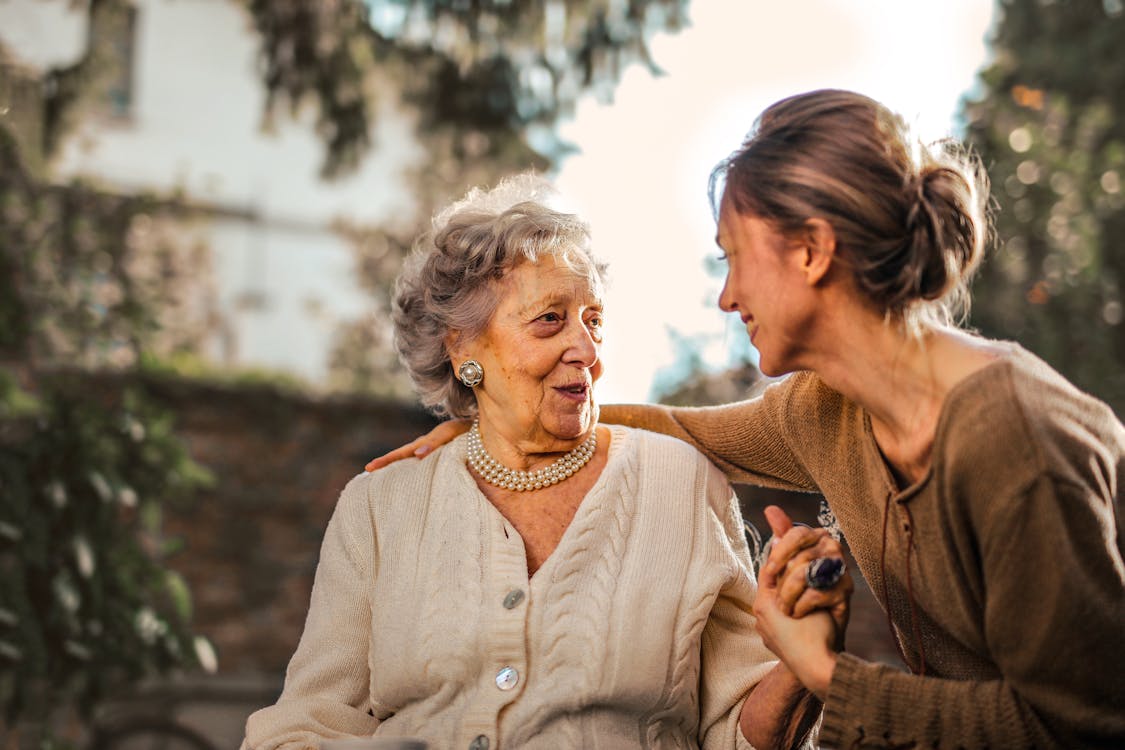Research: The Information Worlds of Informal Carers




June 8th-14th 2020 marks Carers Week and we're taking a look back at some research featured in our Inform II Magazine about The Information Worlds of Informal Carers by Sheila Webber and Dr Pam McKinney.
Here is the original article written by Richard Spencer, Sheila Webber and Dr Pam McKinney:
The combination of an ageing population, and the increasing frequency of people moving around the country to follow their ambitions is causing untold numbers of people real difficulties when it comes to caring for their elderly or infirm relatives whilst in different locations. ‘The original stimulus for the research was my experience of caring for my own mother at a distance’, says Senior Lecturer Sheila Webber, who is researching these issues with Dr Pam McKinney. ‘She was in Sussex whilst I was in Sheffield, and although I consider myself information literate, I was very stressed by the information problems I was having to face. There were all kinds of different terminology being used, and assumptions about how much I knew or didn’t know because of our different information worlds.’
Supported by internal Information School funding in 2017 and 2018, this research project is focused on the information needs of informal carers who do not live with the cared-for person. ‘What we mean by an “informal carer” is someone who helps to look after an elderly person who lives in their own home but can’t quite manage to do all the activities of daily life by themselves’, says Dr McKinney. This is distinct from formal carers, such as ‘meals-on-wheels’ or carers who come into the home to help someone get up in the morning. Informal carers are unpaid and are usually an adult child or another family member.
‘Most of the research in this area has explicitly focused on people who live with the cared-for person, like parents looking after children or spouses caring for each other’, says Webber. ‘There are very few studies on informal carers who live elsewhere.’
The initial study took the form of interviews with 11 stakeholders from different care agencies, including some local authority officials and charity workers in Sheffield, about their perceptions of the information needs of carers. It became apparent that some of these information issues are matters of regulation and policy, with local authorities given some devolved power, but not total control over the ways in which information is shared with informal carers. ‘A lot of the processes are based on the tacit assumption that the informal carer will be in the same local authority as the cared-for person’, says Webber. In the modern world, this is often not the case, with increased mobility for career, family or other reasons often putting many miles between an adult child and an elderly parent.
‘There are issues around finding out the kind of information you might be able to get easily if you were local and could just pop in’, adds Webber.

‘The Care Act 2014 puts the provision of information squarely in the court of the local authority and they are charged with providing it’, says Dr McKinney, ‘but there’s nothing said about what might be the best way to deal with this information. There’s a patchwork of policies and procedures around providing this information, and nothing thought about holistically.’ The authorities in question are strictly measured against this imposed responsibility, which shows that the government is demonstrating some commitment to the seriousness of these issues, whilst still not providing any clear guidance. This research aims to fill these obvious gaps.
Previous research shows that these problems are well known. However, they have never been tackled from the information behaviour and information literacy angles from which the Information School is so well placed to investigate. Looking into how people interact with information in real-world contexts is at the heart of the research interests of both Sheila Webber and Dr McKinney.
‘There are obvious links with other disciplines, but we see this squarely as an information problem that is causing stress and anxiety’, says Dr McKinney.
This is clearly a hugely emotional area to be looking at and one that is sadly relatable to many. As such, the researchers have found all through the project that it has resonated with people. ‘Anyone I speak to about the research who has been in one of these situations really empathises with what we’re doing, and speaks of their terrible information problems’, says Dr McKinney.
Decisions like which care home to admit your elderly parent to can have a huge impact on their life and can put a lot of pressure on an informal carer. ‘I wanted to know what the best care homes were for my mother, and I wanted someone who knew about care homes and had visited them to give me advice on this’, says Webber. ‘The local authority had to be impartial, so all they could say was “here’s a load of care homes, off you go”. Visiting every one to try and guess whether my mother would like it would have been incredibly time-consuming. Problems with these kinds of far-reaching and important choices are common complaints.’ The literature shows that informal caring even continues once someone does find a place at a care home; many informal carers spend large amounts of time in care homes with a cared-for person, around their own lives, and so the information problems don’t even always stop once the formal care has been increased.
Dr McKinney and Sheila Webber presented their work at the European Conference on Information Literacy in 2018, and have many more aims for where their findings could have important uses.
A key finding from the study was that the “carer journey”, which is often presented as a smooth process, is actually fraught with difficulties for the carer. Firstly, there is the length of time it can take for them to self-identify as a carer, meaning missing out on opportunities to gather suitable information. Secondly, there is the disrupted nature of the caring process, with changes in caring roles and responsibilities.
The stakeholders who were interviewed identified that better provision of information was key to improving the carer experience “Information is a really kind of important, critical factor in terms of a preventative approach” However individual agencies struggle to provide all the information that carers need: the fragmentation of the care sector, and the inability to recommend services makes this problem worse. Agencies and formal carers feel constrained by confidentiality and privacy issues when trying to support carers.

Building on their original interviews, the next planned piece of work is collecting much more in-depth case studies of non-residential informal carers, using Sheffield as the location of the cared-for person. Sheffield has performed poorly for the Adult Social Care Outcome Framework score that measures how easy it is for carers to find information and support.
Both researchers agree that findings from the initial research leave them even more convinced that this is a worthwhile problem to investigate. With the UK population ageing and ever-growing concerns about how older people can be taken care of, it is also a research problem which is not going to go away.
Comments